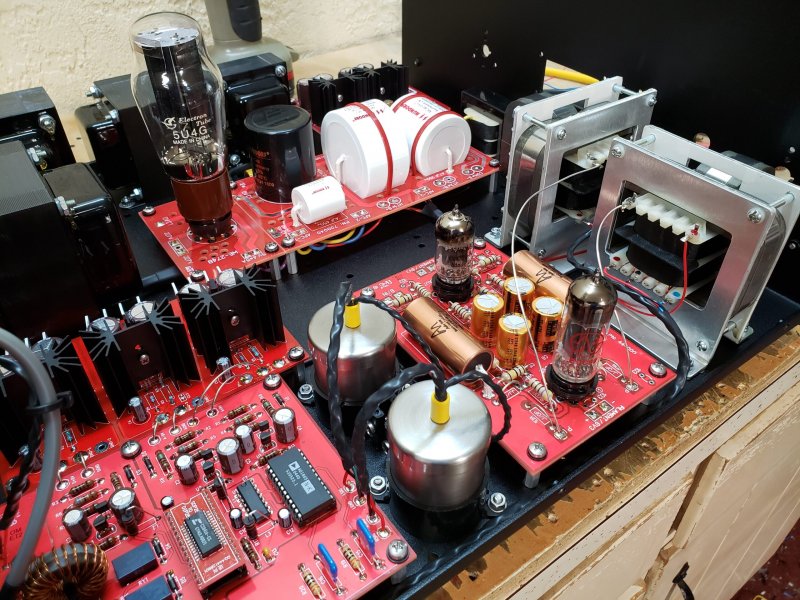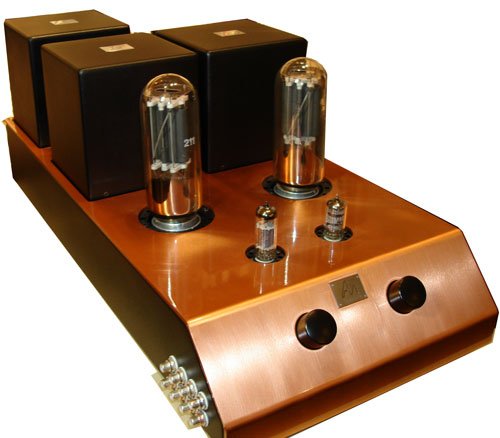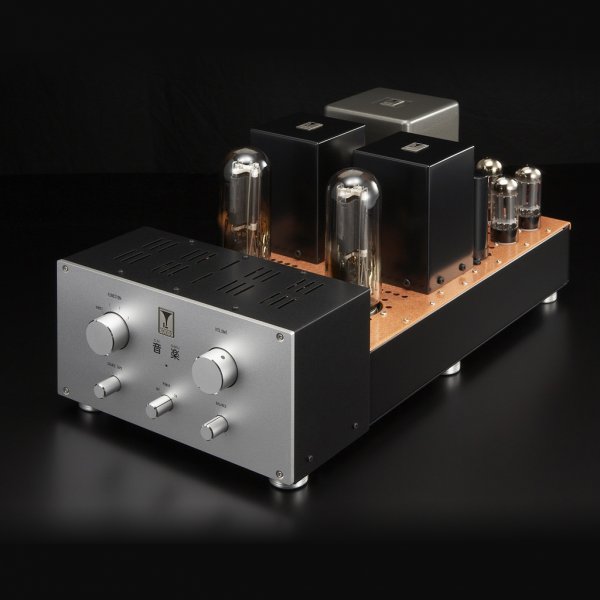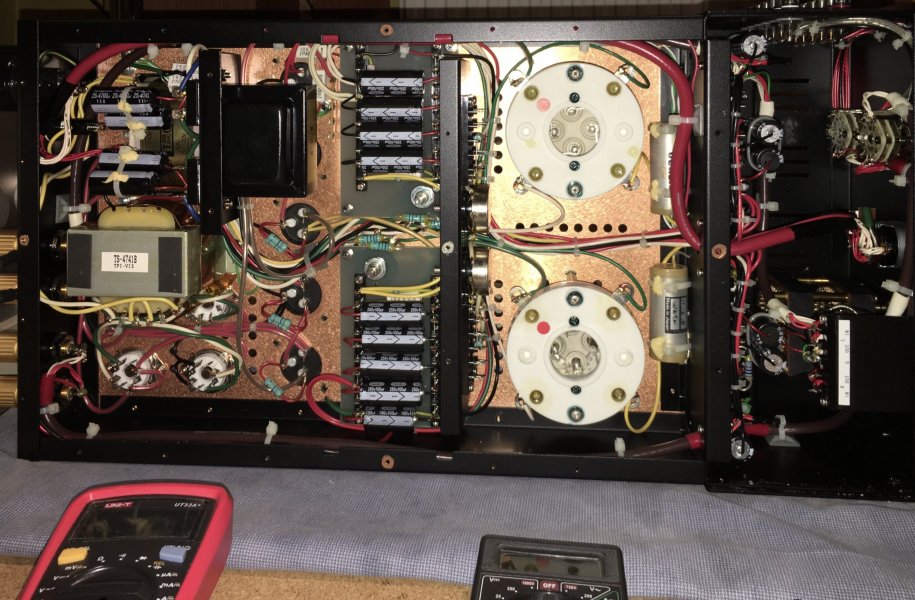One of the two or three best systems I have ever heard was the LV Vox system with all Kondo…emotional doesn’t begin to describe it.I usually don’t ask this on other threads but for those who like Kondo there is a certain emotion aspect that is not available easily in other gear. And with a direct compare, since mtemur is very familiar with Kondo gear, I specifically asked him in this context.
thanks for the tip on multiple openers on the SH forum. Yes I am aware Steve owns the AN stuff.
Howie on this forum has owned both too, he moved from Gobbel Divin to tannoy Westminster to AN E speakers
Audio Note UK vs Audio Japan Sonic Differences
- Thread starter caesar
- Start date
You are using an out of date browser. It may not display this or other websites correctly.
You should upgrade or use an alternative browser.
You should upgrade or use an alternative browser.
I'm heard the oto se with living voice obrx and avantgarde uno love that sound.Well, the prices in audio are getting stupid and there are a lot of dealers who are posting on forums either to slyly dump on the competition or slyly tout their own products.
The El84 is such a pleasurable sounding tube and the OTO has a good amount of stereotypical tube warmth but plenty of drive with the right speakers.
Sometimes I think the OTO isn't taken as seriously because it's not idiotically expensive. I've had mine for 20 years - it ain't going anywhere. I almost sold it once - glad I didn't.
Watch his youtube chanel he has made pretty much videos of everything that audio note built .
Well I have always enjoyed Tannoy and Gobbel but I think the AN E would be better in a slightly smaller room. Perhaps that is what Howie owns - I think this is the same Howie who posts on the SF forum.
I don’t know if it’s the same Howie and I don’t think it was a Room decision he has a big room though I don’t know how the exact space he places it in within the room fits. He can comment when he reads this.
My advice to a lot of folks is to ask yourself what it is you are trying to build - a system that allows you to enjoy music or a system that is an endless audiophile chase for "the best sound" - Dealers who post on forums want everyone to be the latter and that's why reviewers and review magazines exist.
Forums are the same - people feel a sense of power in telling others they're wrong and then what they should buy is what they want you to buy. Well-intentioned it may be of course but there are too many voices.
I don’t know why someone will consciously not chase music, though chasing audiophile sound is the most common. So where I disagree with your advice is to not advice the audiophile to consider which of those he wants…he will usually say he wants to listen to the music even if he has only 10 CDs to listen to. People move into vinyl, recordings, music and performances with experience.
better is to let people know your opinion and then let them consider other opinions and judge by investigating by listening. As much as I like to provide preferences, I don’t like it when people buy what I suggest without listening compares, even when they have positive opinion after buying. And often people audition referred components in incorrect settings
forums are for voices. Otherwise forums wouldn’t exist. A large part of this hobby is the social interaction and debates
Last edited:
Steve Hoffman doesn’t own any Audio Note gear. It’s all on a long-term loan from Peter Q. Steve may talk like an owner but he hasn’t spent any of his own money.The word emotion when applied to audio gear is really problematic because what moves one person won't move another - the proof of this is merely to consider music artists/bands/symphonies etc. Artist XYZ may move one person to a blubbering mass of tears and do absolutely nothing for the next person. The artists who move me can move me on $20 earbuds and the ones who don't move me won't move me even if I spend on a $2 million system (AN UK or Kondo or other).
The problem here again is that both AN UK and Kondo make rather different gear. I dealt with a salesman at one dealer who carried pretty much every brand for over 40 years and often brought in several brands they didn't carry out of curiosity - they went to every CES every year to find new stuff. Their used section was impressive as well. Best of all they were in a brick building with solid walls and well-treated being professional installers for audio and home theatres and movies and concert halls - they also repaired every brand whether they carried it or not.
Anyway, when Don retired he chose as his final amplifier a SORO SE. Where I currently live the dealer here HATES this amp - thinks it's their worst-sounding amplifier and indeed, refuses to carry it. So one dealer who has heard all the top brands top kits for 40 years chooses an amp the other dealer who has been selling gear for 40 years as well and has heard all the top brands in an audio and music mecca has the total opposite opinion of the same amp.
My own take on the SORO is a mixed bag - I have not cared for the amp with AN speakers or DeVore or other boxed speakers in the respective stores - but it made some speakers I have not really cared for sound better than I ever heard them before which was a bit head scratching.
At the prices of AN UK and Kondo - the solution is simply to get in-home trials. These sorts of dealers tend to offer a more luxury buying experience which includes home delivery and setup. Certainly, AN UK offers this as I would assume do all companies in these price points.
If you are looking for more experience with AN UK owners and dealers try the mega threads on the Steve Hoffman forum - Steve owns the Ongaku and Jinro and OTO and DAC 4.1 and a couple of their turntables etc. He masters for Analog Productions and uses AN at home and in the studio. I can't remember if he had the Kondo Ongaku but there are several people in those threads who owned both Kondo and AN UK.

Strictly for fans of Audio Note UK (all things Audio Note UK) PART TWO
A new AN dealer in the UK... Log into Facebookforums.stevehoffman.tv
That's true but it is important to note that there are a lot of other companies who have offered the same thing to Steve - he chooses what he likes the best. It's not that different from me as a reviewer - there is an industry rebate on most all items and thus I will still choose what I want to listen to over a "better deal" on something else that I don't like as much.Steve Hoffman doesn’t own any Audio Note gear. It’s all on a long-term loan from Peter Q. Steve may talk like an owner but he hasn’t spent any of his own money.
The video where they were prototyping a streamer. I doubt it will come to be a product but they have some engineers working on it. I have found it interesting to see some of their prototypes over the years that they wound up chucking. I was hoping they would do a version of the Snell Type A but the speaker is so frankly big and ugly that I can't see them being able to sell enough of them unless they can pretty it up B&W style.I'm heard the oto se with living voice obrx and avantgarde uno love that sound.
Watch his youtube chanel he has made pretty much videos of everything that audio note built .
They are night and day. Just look at the way they are made. Look at the interiors of ANUK and Kondo Japan.Anyone familiar with the sonic differences between Audio Note Japan vs. Audio Note UK? Similar or different these days?
Thanks in advance
I’m not a fan of ANUK! It’s a copy of Kondo Japan, and not a great one. If ANUK were a lot less expensive, fine; but they are priced basically the same as Kondo Japan!
Just look at the Ongaku from both companies:
ANUK uses circuit boards, low cost bent metal chassis.
Kondo Japan is a totally different level of build quality, components, and aesthetics, point to point wiring, etc. It’s like comparing the Mercedes G Wagon to the BAIC BJ80.
Why wouldn’t you have the original when the cost is the same? ANUK must have some talented dealers.
Attachments
Last edited:
You can only be glad that the tubes run with DC heating otherwise the humming would be like hell Kondo €36,000 vs. €7,000 UK. People evaluate the devices so differentlyThey are night and day. Just look at the way they are made. Look at the interiors of ANUK and Kondo Japan.
I’m not a fan of ANUK! It’s a copy of Kondo Japan, and not a great one. If ANUK were a lot less expensive, fine; but they are priced basically the same as Kondo Japan!
Just look at the Ongaku from both companies:
ANUK uses circuit boards, low cost bent metal chassis.
Kondo Japan is a totally different level of build quality, components, and aesthetics, point to point wiring, etc. It’s like comparing the Mercedes G Wagon to the BAIC BJ80.
Why wouldn’t you have the original when the cost is the same? ANUK must have some talented dealers.
Of course, pure silver costs more than copper, but since it's a kit, no one is stopping you from building it with silver (kit 5200€)
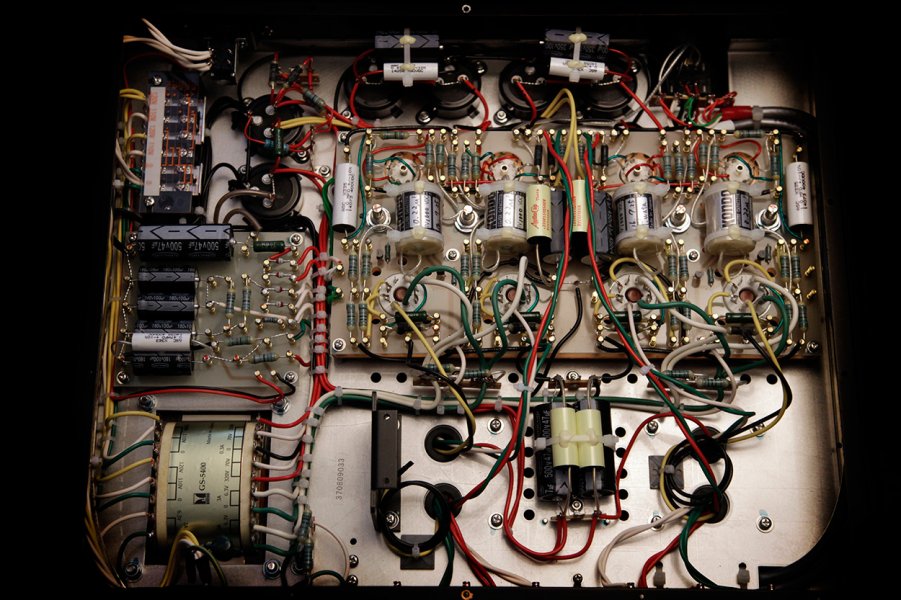
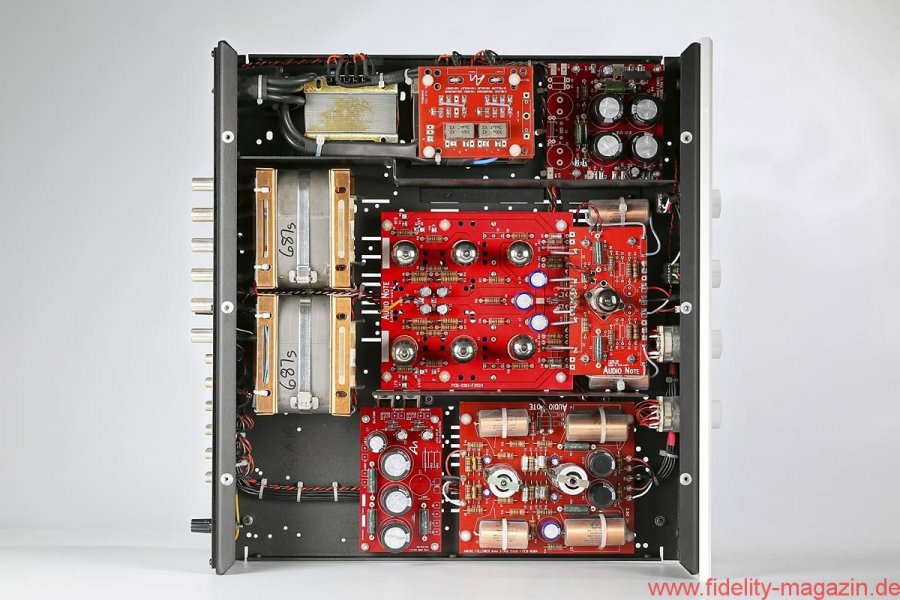
Whenever the topic is AN vs Kondo it is just stronger then me not to post the statement from Audio Asylum by Hiroyasu KONDO.
- Posted by Hiroyasu Kondo on January 20, 2000 at 15:59:26:
Dear friends of Audio Note
Many of you will know that my former distributor, Audio Note UK, a company controlled by Peter Qvortrup and I have ceased to have a business relationship. I have recently read on the Audio Note UK web site Peter Qvortrup’s explanation for this separation. The distortion of the truth is so great that Peter Qvortrup has forced me to go public and explain to you what happen.
As many of you will know I resigned from CBS Sony where I was an audio designer in mid-1970. At this time, I began using the name Audio Note, and my products were branded with that name. I actually incorporated Audio Note in Japan on October 1, 1979. I was manufacturing high end audio products a long time before I even met Peter Qvortrup. In fact, I had a number of agents prior to Peter Qvortrup being appointed my distributor. He proved himself to be a good salesman of my product and eventually I gave him the right to distribute Audio Note products everywhere except Japan. At no time has he ever been involved in the design, or manufacture, of my products. He is not an amplifier designer.
Everything went well for a period of time and he purchased goods through my Japanese business agent, Shibazaki san of Sibatech. Peter Qvortrup asked me if he might have permission to manufacturer a lower end audio product bearing the Audio Note name, I gave him a revocable license to do so.
In 1996 and 1997 problems started to develop, leading me in late 1997 to revoke the license to manufacture products bearing the Audio Note name, and to dismiss him as my distributor.
Peter Qvortrup has claimed on his web site that we parted company because of some “”severe philosophical divergence on amplifier design”, this is not the truth. I terminated my business agreement with Peter Qvortrup and Audio Note UK for three main reasons:
1. Towards the end of our business relationship he had ordered a large quantity of high end Audio Note products manufactured by Audio Note Japan through Sibatec but failed to pay for them.
2. In August 1997 Messrs Pannel Kerr and Forster accountants, were appointed join administrative receivers in the United Kingdom because Audio Note UK were put into the hands of the Official Receivers and into liquidation. The liquidation of Audio Note UK had a bad effect both financially and in terms of the reputation of the name Audio Note and I found it unacceptable.
3. Peter Qvortrup has always used the reputation for reliability and excellence to enhance the sale of the Audio Note products made in England under a license granted by me. However, I started to become concerned when I repeatedly heard complaints from people who had bought the English manufactured products telling me that it was badly finished and unreliable. I recognize that while our reputation could help sell the English products, equally their bad reputation could damage the reputation of the products I was building in Japan.
After I had terminated the agreement with him, I appointed P M Components, in England, as my distributor for Europe. I also granted them a revocable license to manufacture products bearing my name.
Peter Qvortrup’s reaction was firstly to try and threaten people who wish to sell my products with legal action, claiming that the name Audio Note was his. Accordingly, I am a little surprise to see that he now claims on his web site to welcome healthy competition.
Moreover, he took legal proceedings in England claiming that the name Audio Note was his. I did not contest the proceedings because I did not believe that it was necessary to do so. It is so well known that I created the name Audio Note along with the names of individual products which bear Japanese names, such as ONGAKU, KEGON, KAGEKI. These products were designed by me, manufactured by me and the only role that Peter Qvortrup had was in for a time promoting and selling them. I could not believe that he would after I had ended our business relationship try and claim that he had a right to make products bearing my names.
Given the confusion that Peter Qvortrup has introduced into the market, I started to put the word “Kondo” on the front of products I now currently design and manufacture.
This does not mean that I cannot use the name Audio Note, why shouldn’t I use the name Audio Note as I am the creator of it. Lately, I have been told that there have been malicious rumors spread about my health, I am very pleased to say that I am fit and well and working hard in Tokyo pursuing my life long quest for audio excellence and with no time, or desire or need to copy anyone else’s design.
Thank you so much for your interest in Audio Note and for your faithful support over the years.
Please keep an eye out for my new web pages, it will detail all facts.
Last edited:
Wow, another scammer in the audio world. Shocking.Whenever the topic is AN vs Kondo it is just stronger then me not to post the statement from Audio Asylum by Hiroyasu KONDO.
- Posted by Hiroyasu Kondo on January 20, 2000 at 15:59:26:
Well said. BTW last picture you shared belongs to a Kondo Ongaku Special Edition (Only 5 of them ever built) and taken by me in my house.They are night and day. Just look at the way they are made. Look at the interiors of ANUK and Kondo Japan.
I’m not a fan of ANUK! It’s a copy of Kondo Japan, and not a great one. If ANUK were a lot less expensive, fine; but they are priced basically the same as Kondo Japan!
Just look at the Ongaku from both companies:
ANUK uses circuit boards, low cost bent metal chassis.
Kondo Japan is a totally different level of build quality, components, and aesthetics, point to point wiring, etc. It’s like comparing the Mercedes G Wagon to the BAIC BJ80.
Why wouldn’t you have the original when the cost is the same? ANUK must have some talented dealers.
From online photos I have seen, the ANUK products (to my eyes) are so damn ugly too ! Kondo Japan are just stunningly beautiful works of art to look at. Would love to hear a Kondo System. Hopefully one day I will !They are night and day. Just look at the way they are made. Look at the interiors of ANUK and Kondo Japan.
I’m not a fan of ANUK! It’s a copy of Kondo Japan, and not a great one. If ANUK were a lot less expensive, fine; but they are priced basically the same as Kondo Japan!
Just look at the Ongaku from both companies:
ANUK uses circuit boards, low cost bent metal chassis.
Kondo Japan is a totally different level of build quality, components, and aesthetics, point to point wiring, etc. It’s like comparing the Mercedes G Wagon to the BAIC BJ80.
Why wouldn’t you have the original when the cost is the same? ANUK must have some talented dealers.
You can only be glad that the tubes run with DC heating otherwise the humming would be like hell Kondo €36,000 vs. €7,000 UK. People evaluate the devices so differently
Of course, pure silver costs more than copper, but since it's a kit, no one is stopping you from building it with silver (kit 5200€)View attachment 118925View attachment 118926
Wow, the build quality of the Kondo is inspiring!
Whenever the topic is AN vs Kondo it is just stronger then me not to post the statement from Audio Asylum by Hiroyasu KONDO.
- Posted by Hiroyasu Kondo on January 20, 2000 at 15:59:26:
I have no knowledge or position on this historical dispute, but just to balance things, I found this thread supporting the other position in the argument: http://forums.audioreview.com/general-audio/audio-note-uk-kondo-japan-37810.html
I was put off auditioning the Sig version because my dealer said it sounds more neutral more like a SORO. The same dealer also likes the basic version of the Meishu Tonmeister over the model-up Silver version. I have not made a comparison so I can't say but I do know people prefer certain iterations of the amps.You have the non-signature version, right? Have you heard the signature with upgraded output transformers?
You showed four photos - you did not show the internals of the AN UK OngakuThey are night and day. Just look at the way they are made. Look at the interiors of ANUK and Kondo Japan.
I’m not a fan of ANUK! It’s a copy of Kondo Japan, and not a great one. If ANUK were a lot less expensive, fine; but they are priced basically the same as Kondo Japan!
Just look at the Ongaku from both companies:
ANUK uses circuit boards, low cost bent metal chassis.
Kondo Japan is a totally different level of build quality, components, and aesthetics, point to point wiring, etc. It’s like comparing the Mercedes G Wagon to the BAIC BJ80.
Why wouldn’t you have the original when the cost is the same? ANUK must have some talented dealers.
This is the inside of the AN UK Ongaku

In House stepped attenuator (Jinro)
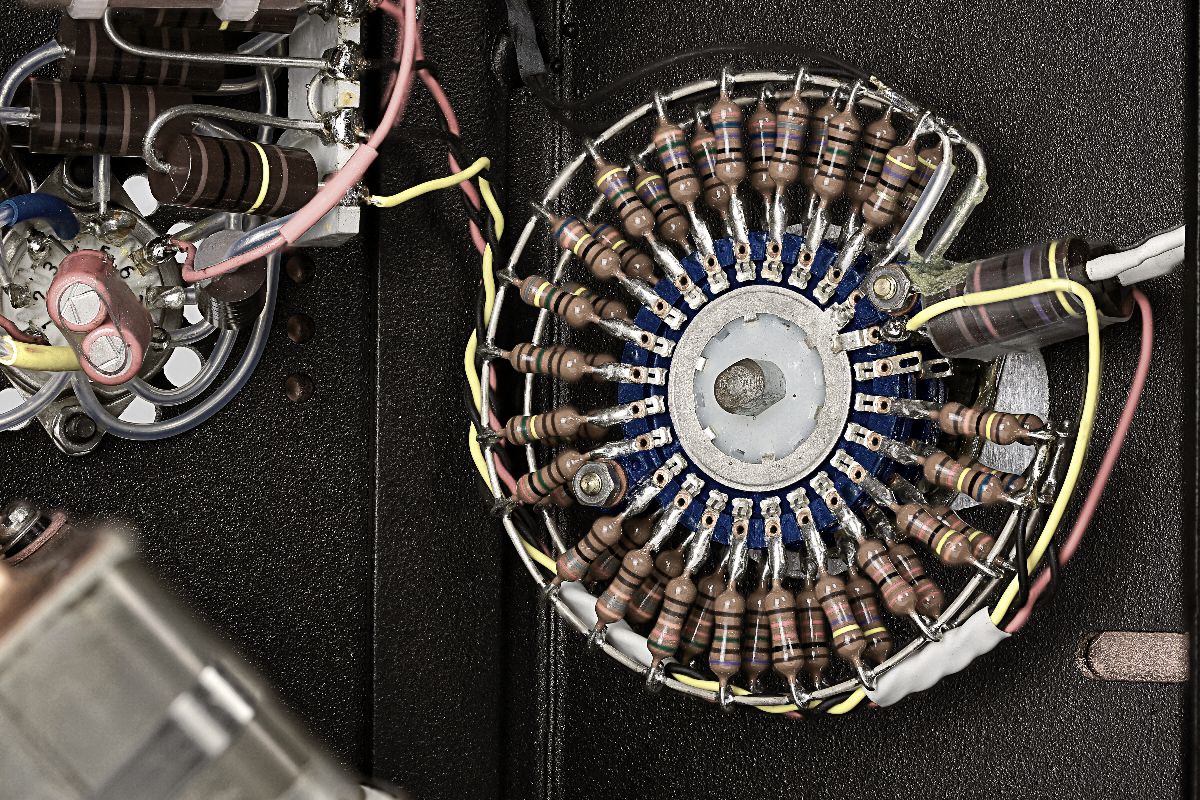
All Point-to-point wired.
The image you showed appears to be an AN Kits DAC.
And for some education - just because there is a "board" inside the amplifier does not mean that it isn't point-to-point wired.
I would agree that AN casework is largely pedestrian.
For up-close internal shots of their products and parts, the factory tour is where one can see what goes into them. Few companies have the quality of the parts from the ground up that the UK possesses. Most companies buy their transformers from the likes of Lundahl and then they are forced to design their amplifiers strictly from "what is already available" - AN UK can design what they want as if there are no valve bases for it - they can design and make their own valve base and design and make their own transformers and their own resistors and their own caps. Virtually everyone else has to design from the transformers and caps and resistors other manufacturers stock.
When selling a "prestige product" there is a difference when buying say a watch from a watchmaker who designs and manufacturers their own movement the case - the whole watch - vs say an Omega who uses an ETA movement - the same sort of movement you can buy in a $700 Tissot - both brands owned by Swatch. This isn't to say that Omega and Tissot (I own three) don't make some fine watches but it's an off-the-shelf movement that all kinds of companies can buy even Micro-brand companies. None of these hold any sort of prestige among enthusiasts. Rolex does. This is why they tend to hold very strong values - they're not buying someone else's movements.
If we're going to compare Ongaku to Ongaku you need to compare the same internal components.
Why not also post Peter's Defense? Part 1Whenever the topic is AN vs Kondo it is just stronger then me not to post the statement from Audio Asylum by Hiroyasu KONDO.
- Posted by Hiroyasu Kondo on January 20, 2000 at 15:59:26:
Of Thieves, Liars & Magpies.
In response to Mr. Kondos posting of January 16, 2000,
Mr. Kondo and I worked together for nearly 20 years and during this time we both benefited enormously from each other skills, knowledge and understanding. I have learnt a lot from Kondo-san and I hope that in a quiet moment, he also appreciates my love of music, commitment to excellence and unyielding support. Our collaboration worked very well for many years, but as in many relationships, business or otherwise, the parties develop in different directions. I wanted to continue to pursue sound quality through further exploration of the single-ended output stage and all manners of transformer coupling.
Mr. Kondo felt in contrast and I believe still feels, as he showed a push-pull 2A3 amplifier at the London High-End Show in September 1999. Firstly, that the push-pull triode output stage can somehow be developed to marshal a return to superiority and secondly that transformers only belong in the output stage of power amplifiers. I always considered this an abandonment of our basic principles and since Kondo-san never presented me with any push-pull prototype that proved to be better than any of the SE amplifiers he made, so I have stuck to my views.
The financial crisis in South East Asia in late 1997 polarised these two divergent philosophies, which then became emotionally and commercially incompatible and Mr. Kondo decided to break off our collaboration and we parted our ways.
It is never easy to break up after so many years and especially when it also involves a high-profile brand, even more so in an industry infested with rumourmongers, hacks and carpet baggers.
After a brief legal argument, Audio Note UK Ltd. retained the rights to the brand name registration and Mr. Kondo is now selling his amplifiers under the name Kondo. The reasons for ANUK retaining the brand name registration are as obvious as they are logical,
1.)The value in the name was created solely and exclusively by Audio Note UK and my personal investment. Kondo-san took no part in the financial, strategic or commercial risks involved in building the brand name recognition.
2.)Registering a company under the name Audio Note in Japan does not in itself give the rights to a brand, only the hard work and expense building it is what makes it known and worthwhile, emotional attachment alone accounts for little in the real world. Since the product strategy, investment and most of the concepts were formulated in the UK with Kondo-san co-operating willingly, happily going along for the ride, for as long as the annual rewards were always on the increase. There was no-one crying foul then.
3.)In the end equation is it really so surprising that the brand name stays with the investor, I would have thought that this was normal practice, just ask anyone with money to invest about this and they will tell you the same.
Therefore there is no question of “stealing" the brand name, intellectually, morally or otherwise so I think we should leave Rossini masterpiece out of the discussion, as attractive as the emotional connections may be.
Now to elaborate with a bit of history.
Since 1990 there were two Audio Note companies, one of which developed and produced its own products under the name Audio Note in the UK and which also specified and distributed Audio Note Japan's products and the original company in Japan.
It is important to note here that it was ANUK who decided which products from AN-J should be marketed outside Japan, and the voice you hear in products like the ONGAKU, GAKU-ON, KEGON and M10 is a mixture of Kondo-san’s and mine. The combination of these two voices is inseparable in these products and was decided upon by myself, and as a result, I often deemed many of Mr. Kondo's products not suitable for wider distribution, much to his considerable chagrin. A fact that undoubtedly contributed to his hostile behaviour during our negotiations in late 1997 and early 1998 and to building his deeply aggrieved attitude later.
The original agreement was that ANUK would develop the more commercial part of the Audio Note product line (Levels Zero to Three). In addition, ANUK should develop a product range complimentary to the Japanese products, capable of displaying their qualities and also provide an overall development platform for improving the concept of music reproduction shared by Kondo-san and I at the time.
With an investment over 7 years of well over one million pounds, ANUK went ahead and largely fulfilled its obligations under the agreement (which incidentally ran out in 1995 without being renewed and might I add without much further discussion about brand name, strategy or new terms of contract).
As a small example, in early 1994 ANUK even paid to send an engineer to Japan to teach and train AN-J staff in quality control procedures, product consistency and layout (amongst other matters showing them how to get the power supply quiet enough to remove the feedback from the ONGAKU). Techniques and concepts that did not at the time exist in any measure at the AN-J factory, one of many such small investments that helped make the AN-J products more saleable.
From late 1993 I kept Kondo-san very busy building NEIRO, ONGAKU, GAKU-ON, M10 etc., but by mid-1997 the emerging financial crisis in South East Asia started dramatically slowing sales. So for the first time in our relationship Kondo-san and I had to face the fact that sales were plummeting and orders to Japan would have to be reduced immediately otherwise overstock would kill our joint cash flow very quickly (these products are expensive to build).
Kondo-san absolutely refused to face up to this fact and make the necessary adjustments to his overheads. So instead of dealing with the problem himself and seeking our cooperation to minimize the damage, Mr. Kondo pushed the entire responsibility onto ANUKs shoulders by demanding that we "fulfil our obligation. This was in his view that we should buy a minimum of what he could produce to keep staff and turnover regardless of whether we could sell it or not, in other words, ANUK owed him a living regardless of market conditions.
This I in turn refused to do, so stalemate ensued.
Part 2
Until April 1998 when Kondo-san with complete disregard of all practical facts, our entire history together, all past understandings and with no consultation or prior warning whatsoever gave a UK company, PM Components Ltd., all rights to distributing his products. This in itself was bad enough, considering how the market for these products had been developed, but to add insult to injury and in direct conflict with our common interests (and with ill-concealed malicious intent, I now believe). Mr. Kondo also licensed PM to use the Audio Note brand name whilst renouncing our use of it, completely disregarding the following facts,
a.)Turnover wise, AN-J was very much the junior partner in the relationship, despite its longer history, and ANUK represented at least 80% of AN-J turnover.
b.)His ill-considered, irresponsible and callously one-sided action put the 30 or so jobs at ANUK in jeopardy by creating great uncertainty about the brand's long-term future. In addition to that putting 1000 of our customer's investments in our products in question through a potential loss of warranty and service back-up should ANUK fail as a result of his actions. ANUK's turnover at its peak in 1997 was well over £ 4,000,000.00 and that represents a lot of customer investments in the future. How can he single-handedly decide to attempt to scrap that?
c.)The reality was and is that whilst the brand name originated in Japan, the ownership of the brand name had long since passed to ANUK through the way the original agreement was structured and the fact that the brand name recognition was paid for and created solely through ANUK efforts.
d.)PM Components had no experience in this sector of the market, a sector solely created by ANUK.
Interestingly and surprisingly, it appears that the terms granted PM were substantially less severe than what Kondo-san had demanded of ANUK in order to renew our agreement. One can only wonder why?
When you add the above up, I did what anyone else in my position would do, in order to protect our employees' jobs, our customers and our own investment and ANUK's future, I sued AN-J and PM. We soon won the first round, an injunction preventing AN-J from giving a licence to the name to PM effectively blocking its use.
So since it was Kondo-san who broke our cooperation and made the decision to venture out on his own, what is he so aggrieved and resentful about? Let me give you a brief analysis for your consideration.
1.) Without ANUK's involvement in 1990, he would still have a small company in Japan, making high-quality audio products. He still has, what happened from 1990 to 1997 was in the most part due to my efforts, not his, so any profits or experience he has gained as a result should be considered a benefit, not a disadvantage.
2.) He is no longer travelling to shows that I pay for, showing demonstration amplifiers that I also finance. True, because to do this he needs to work within the framework of my strategy and concepts, using my money and my contacts built up over 20 years of selling quality music reproduction equipment. But this was his own choice, so why am I being blamed?
3.) He would have been unknown to most audiophiles because contrary to his own internal beliefs, Kondo-san became famous through my staff, our distributors and my efforts to put him in the limelight and explain our joint philosophy to the world. In this regard we gave Kondo-san a head start not many in the audio industry have had the benefit of, how can he be unhappy with that? His decision to leave the partnership has done all the damage necessary and nowhere has this been more clearly demonstrated than what has happened to our joint reputation, as a result, our time has been spent on damage limitation and thinking up new products.
4.) So now all he has to do is what I did when we started seriously promoting Audio Note in the late 1980s, start with an unknown brand name (Kondo) and build it to fame and fortune himself. Still without the drawback of complete obscurity (a testament to our success in putting Kondo-san in the limelight is the fact that you read his posting and that you are reading this now). The clock has been turned back to 1989, due in no small part to Kondo-san's own inability to act responsibly, logically and with respect for other people's efforts, commitment, time and money. ...
Peter Qvortrup
Audio Note UK Ltd
18.01.2000
What was telling to me was that Kondo never disputed/refuted anything Peter said here.
Until April 1998 when Kondo-san with complete disregard of all practical facts, our entire history together, all past understandings and with no consultation or prior warning whatsoever gave a UK company, PM Components Ltd., all rights to distributing his products. This in itself was bad enough, considering how the market for these products had been developed, but to add insult to injury and in direct conflict with our common interests (and with ill-concealed malicious intent, I now believe). Mr. Kondo also licensed PM to use the Audio Note brand name whilst renouncing our use of it, completely disregarding the following facts,
a.)Turnover wise, AN-J was very much the junior partner in the relationship, despite its longer history, and ANUK represented at least 80% of AN-J turnover.
b.)His ill-considered, irresponsible and callously one-sided action put the 30 or so jobs at ANUK in jeopardy by creating great uncertainty about the brand's long-term future. In addition to that putting 1000 of our customer's investments in our products in question through a potential loss of warranty and service back-up should ANUK fail as a result of his actions. ANUK's turnover at its peak in 1997 was well over £ 4,000,000.00 and that represents a lot of customer investments in the future. How can he single-handedly decide to attempt to scrap that?
c.)The reality was and is that whilst the brand name originated in Japan, the ownership of the brand name had long since passed to ANUK through the way the original agreement was structured and the fact that the brand name recognition was paid for and created solely through ANUK efforts.
d.)PM Components had no experience in this sector of the market, a sector solely created by ANUK.
Interestingly and surprisingly, it appears that the terms granted PM were substantially less severe than what Kondo-san had demanded of ANUK in order to renew our agreement. One can only wonder why?
When you add the above up, I did what anyone else in my position would do, in order to protect our employees' jobs, our customers and our own investment and ANUK's future, I sued AN-J and PM. We soon won the first round, an injunction preventing AN-J from giving a licence to the name to PM effectively blocking its use.
So since it was Kondo-san who broke our cooperation and made the decision to venture out on his own, what is he so aggrieved and resentful about? Let me give you a brief analysis for your consideration.
1.) Without ANUK's involvement in 1990, he would still have a small company in Japan, making high-quality audio products. He still has, what happened from 1990 to 1997 was in the most part due to my efforts, not his, so any profits or experience he has gained as a result should be considered a benefit, not a disadvantage.
2.) He is no longer travelling to shows that I pay for, showing demonstration amplifiers that I also finance. True, because to do this he needs to work within the framework of my strategy and concepts, using my money and my contacts built up over 20 years of selling quality music reproduction equipment. But this was his own choice, so why am I being blamed?
3.) He would have been unknown to most audiophiles because contrary to his own internal beliefs, Kondo-san became famous through my staff, our distributors and my efforts to put him in the limelight and explain our joint philosophy to the world. In this regard we gave Kondo-san a head start not many in the audio industry have had the benefit of, how can he be unhappy with that? His decision to leave the partnership has done all the damage necessary and nowhere has this been more clearly demonstrated than what has happened to our joint reputation, as a result, our time has been spent on damage limitation and thinking up new products.
4.) So now all he has to do is what I did when we started seriously promoting Audio Note in the late 1980s, start with an unknown brand name (Kondo) and build it to fame and fortune himself. Still without the drawback of complete obscurity (a testament to our success in putting Kondo-san in the limelight is the fact that you read his posting and that you are reading this now). The clock has been turned back to 1989, due in no small part to Kondo-san's own inability to act responsibly, logically and with respect for other people's efforts, commitment, time and money. ...
Peter Qvortrup
Audio Note UK Ltd
18.01.2000
General Asylum: Re: Audio Note of Japan (KONDO) by Peter Qvortrup - Audio Note (UK) Ltd.
Audio Asylum - General Asylum: Re: Audio Note of Japan (KONDO) by Peter Qvortrup - Audio Note (UK) Ltd. - General audio topics that don't fit into specific categories.
db.audioasylum.com
What was telling to me was that Kondo never disputed/refuted anything Peter said here.
There is an old saying that there is no bad advertising so the debate still rages on more than 20 years later and the best thing you can have is people talking about you (good or bad). If no one is talking about you you probably aren't selling very much. And this is a business after all. AN UK can't keep up with demand - when I first discovered AN they had 4 dealers in all of North America in 2000. They had one relatively small plant (they are now housed in B&W's old plant) and have 3 other plants in other countries.Always good to have both sides of the story as usually truth might be somewhere in the middle...
Forum debates would have people angry and go to AN dealers and go there to say they went there to rip it - but others went to see what the fuss was all about. The owner of my dealer in Canada was happy because it got more butts in the seats - even if they didn't buy AN - they may have wound up buying one of the other numerous brands they carried.
Sure it helps Kondo too - but at those price points for most people, it is completely beyond their ken. $32,000 US is their cheapest amplifier. A lot more people can buy the OTO for ~ $3,000. Having a product list that is over 200 pages offers a myriad of options and upgrades and choices.
I mean I thought about this earlier today - I find it kind of strange that the peanut gallery on the internet sides with the supposed David (Kondo-San) vs the Goliath (Peter Qvortrup) when only Peter is the one who actually makes amplifiers that regular people can actually afford - it's easy for the uber-wealthy rich people on forums like this to side with Kondo-San who caters to people buying the "entry-level $32,000 USD" amps while the evil goliath sells really nice amplifiers, CD players and DACs, speakers for under $3k. So it does make me chuckle a bit. I mean which manufacturer is on the side of the "regular Joe" here?
Now the cheapest Kondo amp is $42,500. I won’t advocate high prices but unfortunately when you aim the best it doesn’t come cheap.Sure it helps Kondo too - but at those price points for most people, it is completely beyond their ken. $32,000 US is their cheapest amplifier. A lot more people can buy the OTO for ~ $3,000. Having a product list that is over 200 pages offers a myriad of options and upgrades and choices.
Having a short product list like Kondo has brings concentration on better sound quality while 200 pages long AN UK product list can only bring mediocrity.
Last edited:
Similar threads
- Replies
- 0
- Views
- 791
- Replies
- 25
- Views
- 3K
- Replies
- 210
- Views
- 21K
| Steve Williams Site Founder | Site Owner | Administrator | Ron Resnick Site Owner | Administrator | Julian (The Fixer) Website Build | Marketing Managersing |

















